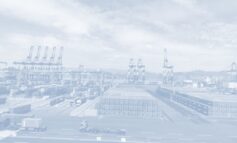Guest Editors
Adolf K.Y. Ng and Paul T.W. Lee
Deadline for Abstract Submission: 25 May 2016
Government plays hugely significant, and sometimes decisive, roles in the evolution and development of transport systems, and substantial research in transport and transport policies has supported this notion. For instance, in 2013, the Government of the People’s Republic of China (hereinafter called ‘China’) initiated the concept of the Silk Road Economic Belt and the 21st Century Maritime Silk Road in tandem with launching the Asian Infrastructure Investment Bank in 2015. However, even with massive realignments in construction and operations, the impacts of such initiatives, and the resulting spatial patterns of transport systems, are likely to be countered by certain inertia and forces. Even when transformation does happen, its location, extent, and scale (e.g., local, regional, or large-scale) would likely vary. Of course, there is also a question on whether existing transport system and infrastructures are ready for such a transformation and able to meaningful contribute to the initiative. This leads to an important query: to what extent, and under what circumstances, would new, major government initiatives lead to fundamental spatial transformation within the transport systems? If not causing such fundamental transformation, would such initiatives finally be ‘absorbed’ by the existing framework and remain stagnant? Also, to what extent, and in what ways, would such major initiatives impact on the institutional systems and planning process of transport systems? This query requires further research so as to get satisfactory answers. Understanding that new, major governmental initiatives involve inputs of substantial time, large-scale efforts, and capital-intensive investment on infrastructures and facilities, getting satisfactory answers would effectively help policymakers in identifying the right approach in transforming transport systems, enhancing their quality, thus improving international trade and the global economy as a whole. Getting the right approach also ensures that substantial time and resources will not be wasted throughout the implementation process.
Themes, Objectives, and Submission Process
- To answer the above queries, this JTRG special issue will focus on the impacts of new, major government initiatives on the spatial transformation of transport systems. Addressing spatial challenges related to transport would be especially desirable, for instance (but not limited to):
- The impacts of FDIs and trade drivers on the scale of links, networks, and reconfiguration along transport systems.
- The present capacity of transport systems and infrastructures, their performance, ‘readiness’ in adapting to new, major government initiatives, and the development/expansion required.
- The roles of institutions in shaping the process and spatial outcomes of transport systems and infrastructures under new, major government initiatives.
- The past and present competition and cooperation between transport modes as a guide to future.
- The resilience of present transport systems and transport infrastructures in the face of a new geographic focus.
Understanding the objectives of JTRG, all accepted papers must directly address a geographical/spatial issue linked to major government initiatives. Ideally, the papers should: (i) effectively apply geography/spatial theories in explaining and enhancing the development of major government initiatives and accompanied transport systems; and/or (ii) pose clear theoretical contributions to the current academic discussions on the mobility of people/goods. Papers based on both quantitative and/or qualitative methods are welcome, as long as they can fulfil the objectives of this special issue and JTRG. All the received papers will be subject to the full peer-review process and the guidelines for special issues as requested by JTRG. It is noted that the final publication of this special issue is subject to the approval of the Editors and Editorial Board of JTRG.
Timetable and Milestones (subject to changes)
25 May 2016: Deadline for abstract submission
31 May 2016: Notification of abstract acceptance
30 Sept 2016: Deadline of submitting draft manuscript for peer-review
Early Dec 2016; Return of review reports to authors for revisions
Early Jan 2017: Submission of revised manuscript
Early Feb 2017: Deadline of submitting final manuscript
Jun-Sep 2017: Final publication
Submission and Enquiries
All abstract submissions, and any further enquiries, should be directed (by e-mail) to:
Prof. Adolf K.Y. Ng
Transport Institute
Asper School of Business
University of Manitoba
Drake Centre, 181 Freedman Crescent
Winnipeg, MB, R3T 5V4, Canada
E-mail: [email protected]
Prof. Paul T.W. Lee
School of Business IT and Logistics
RMIT University
Building 80, Level 8
445 Swanston Street
Melbourne, Vic 3000, Australia
E-mail: [email protected]











